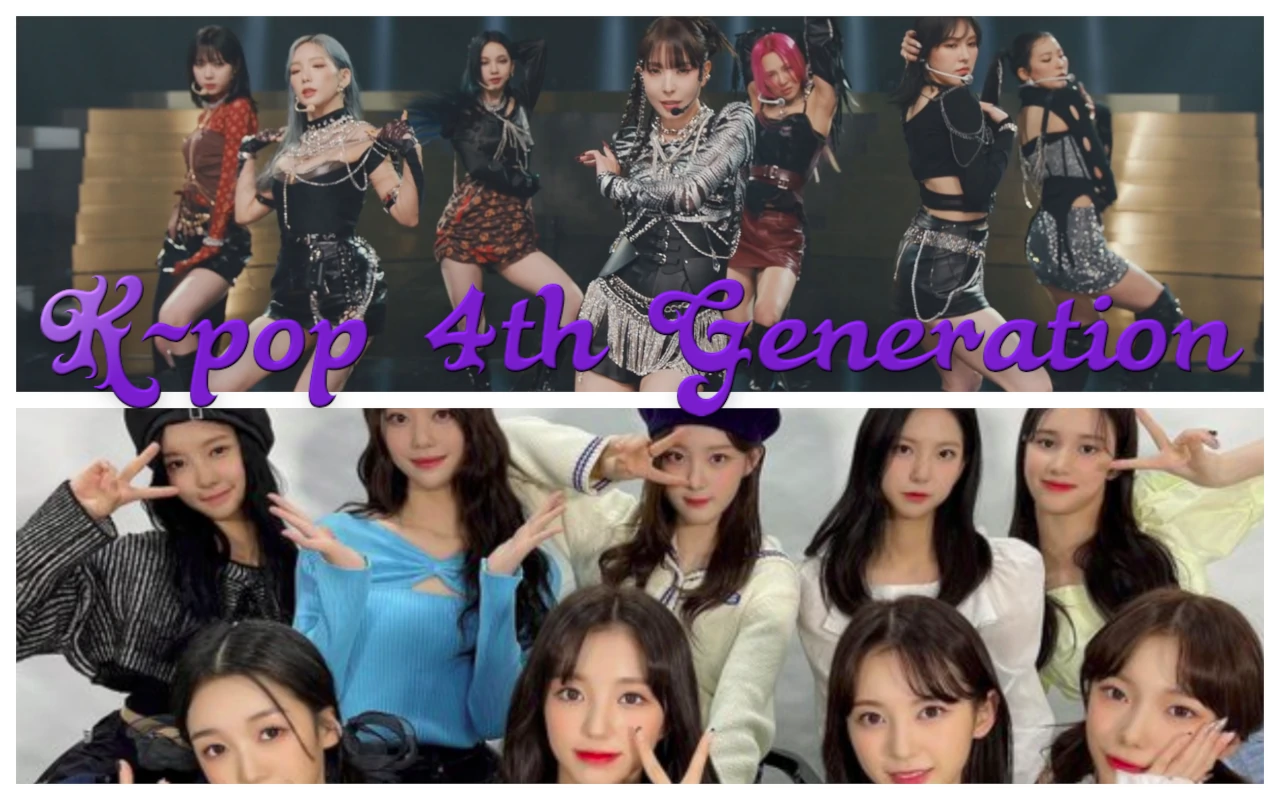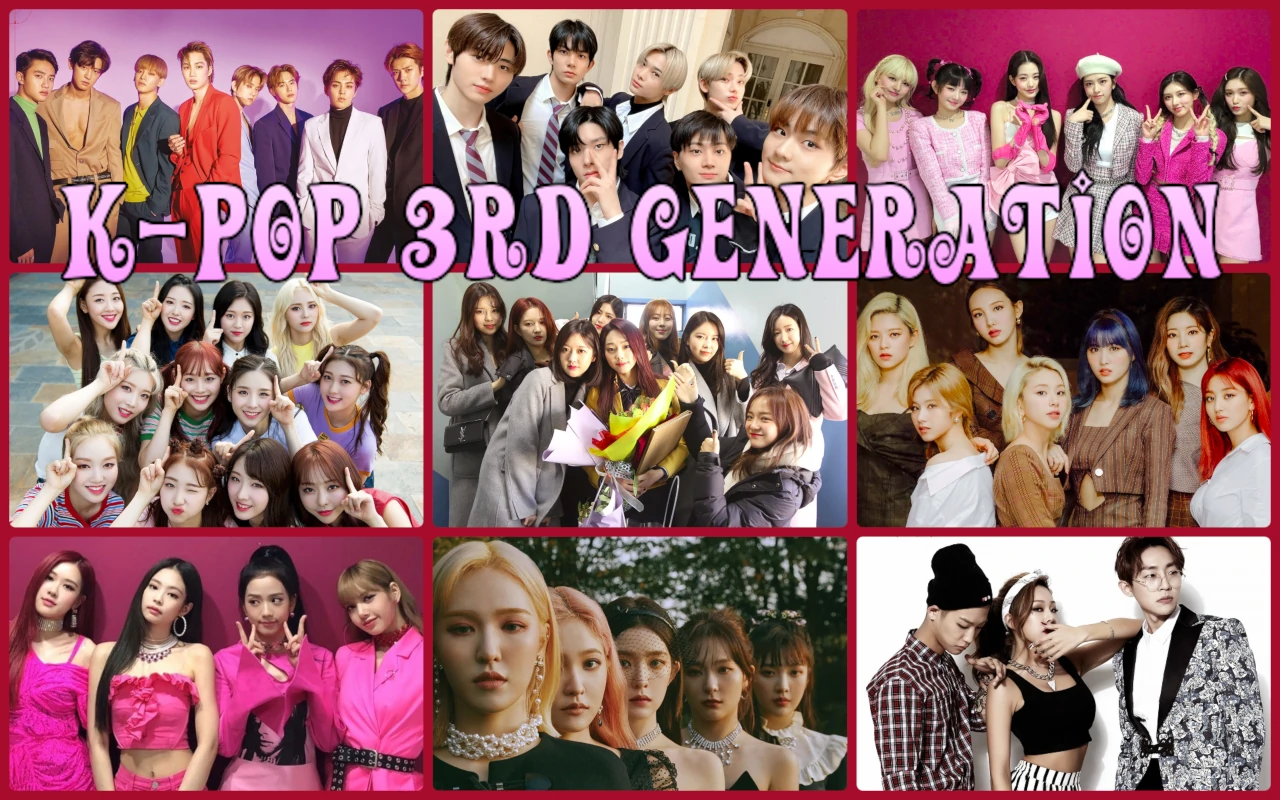
Videos

4th generation modern K-pop (2022–2031)
The 4th Generation of K-Pop Music started in 2022 and will end on 2031. Already an exciting generation as it was opened by supergroup Girls On Top through its subgroup GOT the beat which was quickly followed by newcomer girl group Kep1er, a generation which will definitely become a Girls’ Generation and everyday a Girl’s Day.

3rd generation modern K-pop (2012–2021)
The 3rd Generation of K-Pop Music started in 2012 and ended in 2021. In this generation’s first year it was clear that K-pop is here to stay. Solo act Ailee together with groups Crayon Pop, NU’EST, EXO, and AOA showed what the third generation should be.

2nd generation modern K-pop (2002–2011)
The 2nd Generation of K-Pop Music started in 2002 and ended in 2011 which was led by solo acts like Byul, Gummy, and Se7en; and the revival of K-pop groups by TVXQ!, SS501, and Super Junior.

1st generation modern K-pop (1992–2001)
The 1st Generation of K-Pop Music started in 1992 and ended in 2001. Here are the pioneering groups and solo acts who started the modern K-pop that we all know today.

YourOnly.One Best 2022 New Year Celebrations
2021 was not a good year for most just as 2020 was before it. Despite that, hope is in the air as billions of people ushered in 2022 in a joyous way.
![[Video] Best marriage proposal of 2015 - a 365 days proposal](https://img.youtube.com/vi/ECRqF4BHkGk/hqdefault.jpg)
[Video] Best marriage proposal of 2015 - a 365 days proposal
What was the best marriage proposal of 2015? Proposing for 365 days!
![[Video] Romantic and surprise marriage proposal Rendy & Maggie](https://img.youtube.com/vi/iTgyPmvzWKg/hqdefault.jpg)
[Video] Romantic and surprise marriage proposal Rendy & Maggie
What a romantic marriage proposal by Rendy.
![[Video] How-To calibrate the phone compass](https://img.youronly.one/publicdomain/compass-travel-background.webp)
[Video] How-To calibrate the phone compass
Since I got my first ever smartphone, Samsung Galaxy Y (S5360), (and Android too) I was having some problems with calibrating phone’s compass. The compass applications I found in the Android Market instructs users to do a figure-8 wave. I did all kinds of figure-8 wave and well, nothing.

The YOOki (柳紀 ・ 유 기) Chronicles is ᜌᜓᜃᜒ (Yuki ・ 雪亮)’s return into casual and personal blogging. The name “YOOki” is a mash-up of the acronym of YourOnly.One and my nickname ᜌᜓᜃᜒ (Yuki ・ 雪亮).
Interestingly, according to Chinese legend, 「柳」 (YOO) is an ancient Chinese surname. The ancestors of the surname were closely linked with the ancient sage-king named Yu Shun. In Korea, the 「유」 (YOO) lineage traces to the Xia, Han, and Joseon dynasties. Holders of the surname Yu or Yoo had a reputation for charity and diligence
.1
It is also the word for “willow” or the “willow tree” which means graceful or slender; and a tree growing near a body of water which provide continuous nourishment and resources for everyone. It can also mean to exist, an oil (anointment(?)), and simply as “U” (you).
The hanzi 「紀」 (ki) character means to record, be disciplined, provide order. While the hangul equivalent, 「기」 (ki; gi), means energy, spirit, a banner, and a period of time; and is also a suffix used to make a gerund or an infinitive.
Can you guess what I mean by 「柳紀」 and 「유 기」 as the Chinese and Korean for “YOOki”?


